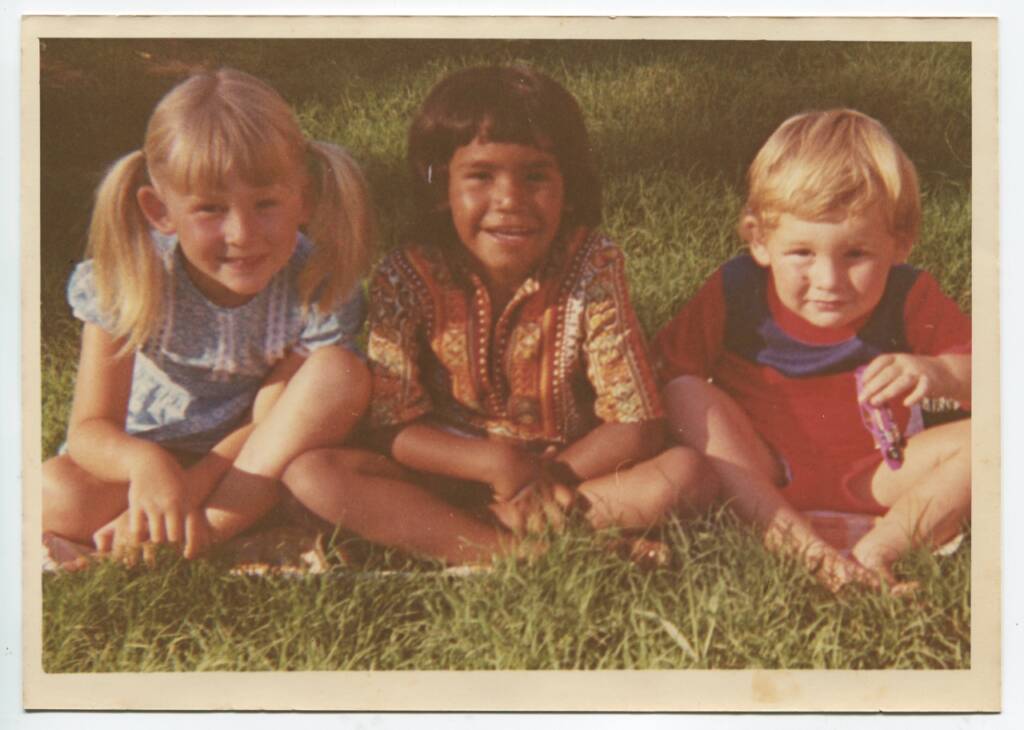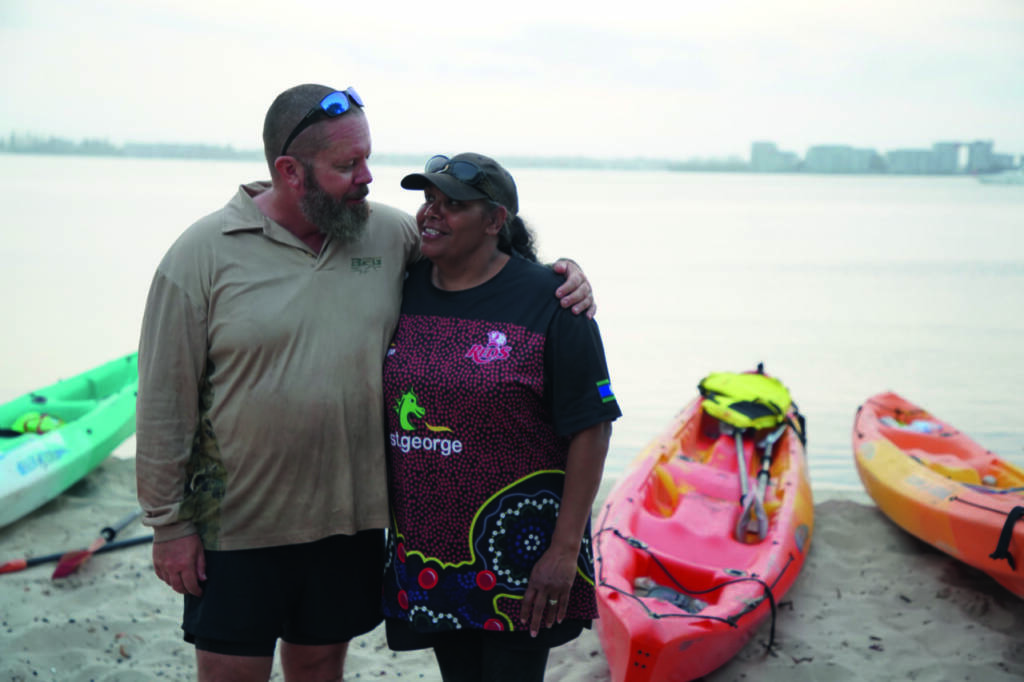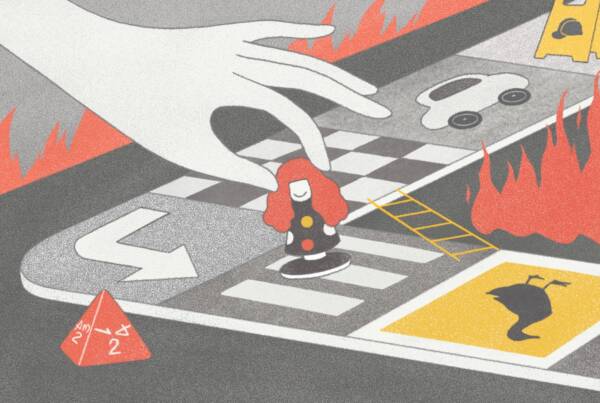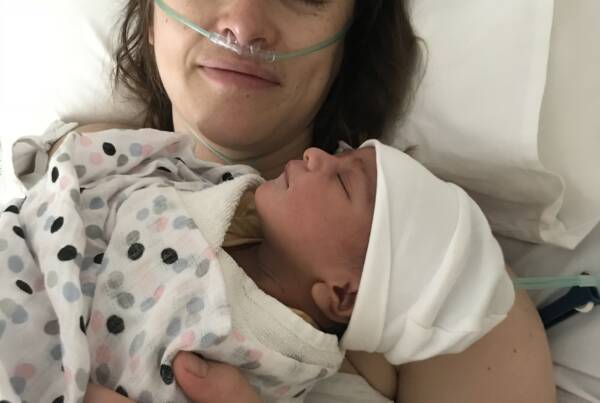Interview of Brenda Matthews by Freya Bennett
Brenda Matthews is a proud Wiradjuri woman. She lives with her husband, Mark, in Bundjalung country, Queensland. Brenda is a mother, a grandmother, a sister, a daughter, an aunty, a storyteller, a speaker and co-director of the feature film, The Last Daughter, a documentary of her life.
When Brenda Matthews was two years old, she and her siblings were taken from their parents. For the next five years she was a much-loved daughter in a white family. Brenda was a happy child in a country town on the outskirts of Sydney, unaware of the existence of her Aboriginal family or how hard her parents were fighting for her return—also, completely unaware of her Aboriginal identity.
She was suddenly returned to her Aboriginal family, the last daughter to come home. Decades later, feeling a sense of something missing in her life, Brenda searches for her foster family and her beloved white sister, with whom she had had no contact. Along the way she uncovers long-buried secrets and government bungling, as well as a deep connection to family and to her Aboriginal culture.
Hello, I am great, thank you.
Congratulations on your documentary and book, how did it feel sharing your story?
Thank you, it is a wonderful experience sharing my story. I’m so grateful to everyone who helped share it through a film, a book and a talk. So thankful to those who gave me the safe space to share my story. It has been such a wonderful journey collaborating with everyone involved. It’s an incredible feeling finally being able to share truth through storytelling, so liberating.
Your story of being stolen is a story that isn’t often told. Why is it important to share the multifaceted layers of your experience?
It is so important that these stories are shared, not to make people feel guilty or condemn, but to share truth, to bring healing and to acknowledge history.
I was only two when I was taken from my Indigenous family and placed in a white family. Then when I was only seven or eight, I was taken from my white family.
My first memories were of my little white sister and of my white father taking me back to my mother and father’s place. I lost my white family whom I had grown to love, and they’d reciprocated that love. I didn’t see colour; I just saw love.
When I returned to my Indigenous family, I didn’t remember them and had to be reintroduced to my own family. I felt like an intruder in their home, but I didn’t know then that my siblings had also been taken.
When my white father took me back to my mother and father’s place, I thought he’d come back to take me home. But when he didn’t return, I felt abandoned and rejected. I thought my white mum and dad had chosen my little white sister over me. I thought of my little white sister often. I was a hurt little girl trying to navigate my way through life. I felt like there was something missing in my life. Even though I was back home where I belonged I missed my little white sister and my white family—I wanted to find them again.
It is so important to share the multifaceted layers of my experience because it is a lived experience. And if I don’t share my story how will my children and grandchildren know who they are? How can I share a healing story with others if I keep it to myself? That would be selfish of me. In our culture that’s what we do, share stories and pass them down the generations. So, I am just being true to myself by sharing my story.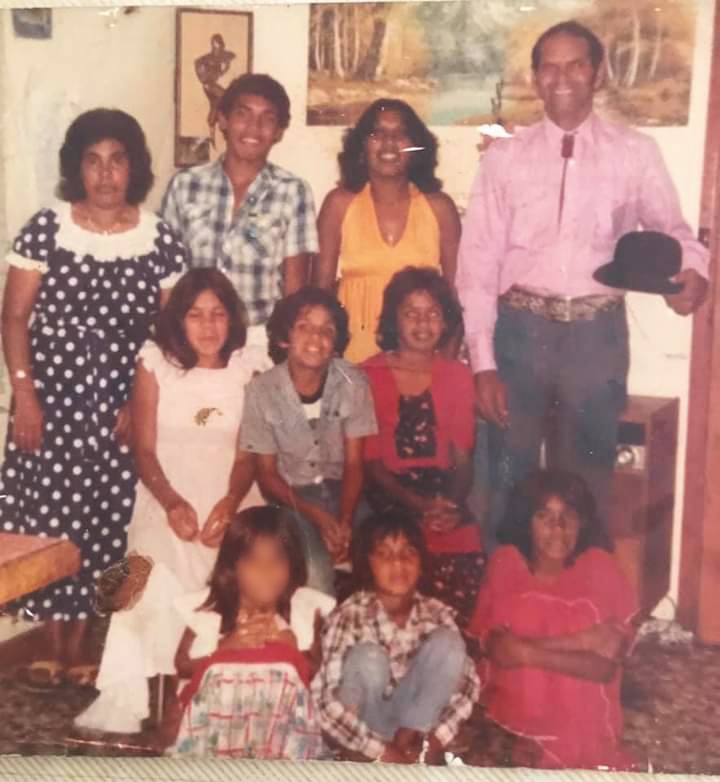
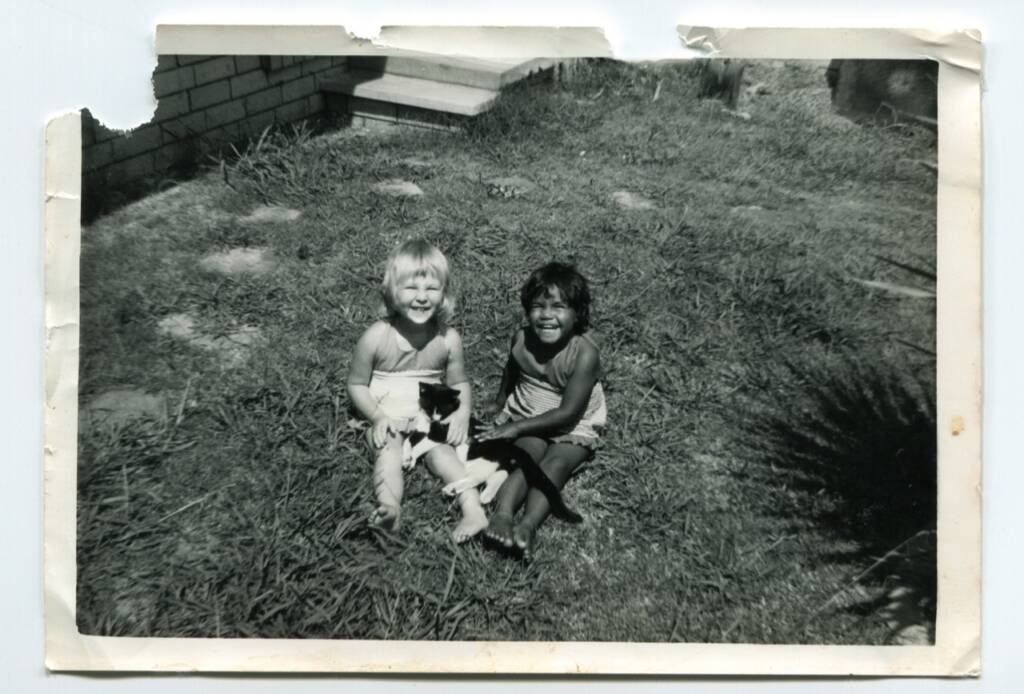 What do you want younger generations to understand about the stolen generation?
What do you want younger generations to understand about the stolen generation?
I want the younger generations to understand that these stories are all lived experiences. They’re not myths or made-up stories, but true, heartfelt stories. That if we understand the past and acknowledge the stories of this land, then we can understand the complexities that have evolved and continue to evolve in our nation. I want them to understand that they are the next generation of storytellers of this nation, black or white, whatever colour, you have joined our circle in this country. What story will you share with the next two generations? Will it be a story of division, or will it be a story of healing?
What has been crucial to your healing journey?
All of it. In our culture everything is connected, nothing exists in isolation. My whole journey was crucial. Finding identity, belonging and connection through my culture. Reconnecting with my black family. Reconnecting with my white family. Being accepted into the Bundjalung community in Fingal. Realising I have a lot of places to belong. Going on a journey of self-reflection, interrogating myself internally and asking myself the questions, ‘where is home when it doesn’t feel like home? Where do I belong?’ We’re so good at trying to change others, yet it’s so hard to try to change ourselves. We cannot change the nation or the world without first changing ourselves So, for me to reflect on my own story and learn my songline, all of it was crucial in my healing journey.
How did it feel when you united your two families?
Oh, it felt wonderful. It felt like my family circle was complete after forty years. My father shared a story with us of a dream he had. Talking about mending family circles with your love, family ties and values. He and mum paved the way for us, by mending their family circle. Fighting for all their children till they got all of us back home. I felt like it was now my responsibility to mend my family circle and to pass that down to the next generations in my family.
What advice do you have to young Aboriginal people who want to connect to their culture but don’t know where to start?
I would say, start with yourself. Everything you need to thrive is deep within you. There is a listening place within. Listen from within, it is inherent. We are spiritual people in need of spiritual healing. Practice this listening from within, it is a practice that has been handed down generationally and it’s no different today from what it was when it was first handed down.
You can watch the trailer to The Last Daughter here and find a copy of Brenda Matthews book of the same name here.

